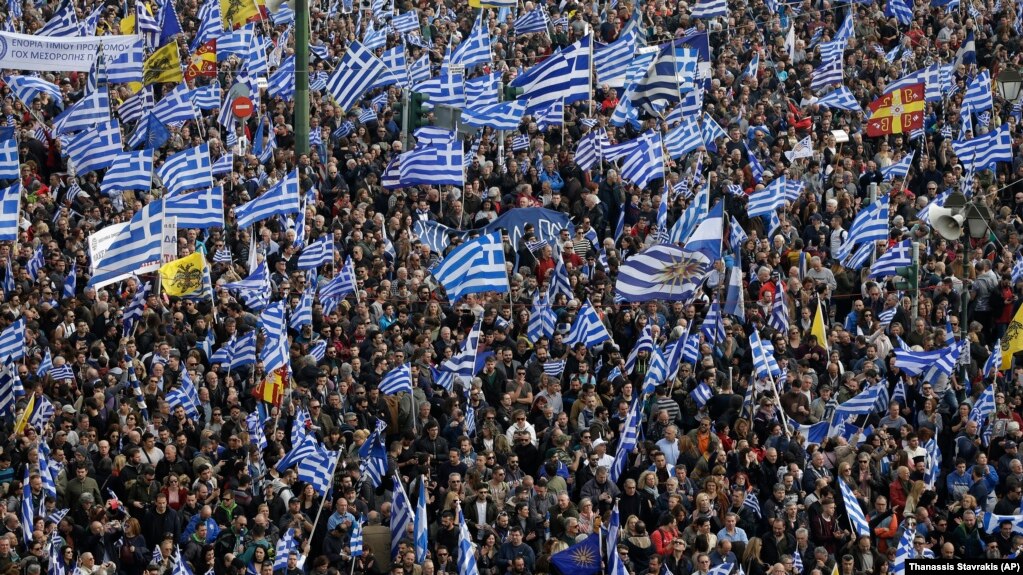Greeks Plan Protests Against Compromise Deal On Macedonia’s Name

Organizer Michalis Patsikas told a news conference in Athens on May 31 that he expects demonstrations in 13 cities in the Greek province of Macedonia, which borders the Balkan country and where opposition to compromise with Macedonia is strongest.
Demonstrations are likely in other cities as well, Patsikas said, predicting they will attract as many as three million protesters.
The leaders of Greece and Macedonia this week said they are near agreement on a new name for the Balkan country that resolves both countries’ claim to the name Macedonia.
Greek opposition to Macedonia using the name has for decades been the biggest roadblock preventing the Balkan nation from joining the European Union.
But while the countries’ leaders reportedly are near agreement on a new name such as “Upper Macedonia,” or “New Macedonia,” the planned protests show that public opposition remains to any compromise.
Political leaders “will find us confronting them, and this time we will be three million,” said Patsikas, who claims that opposition groups have the support of the Greek clergy and mayors.
“It seems the government did not get the message” sent by previous demonstrations, he said. “We are no rag-tag army.”
The demonstrations are set for June 6, and additional venues will be announced on June 4, he said. So far, no protests are planned in Athens or the major northern Greek city of Thessaloniki, he said.
Macedonian Prime Minister Zoran Zaev said on May 30 that he and Greek Prime Minister Alexis Tsipras have agreed on the “foundations and principles’ of an accord that will require approval in Macedonia’s parliament as well as in a public referendum.
Diplomats have said the agreed name will almost certainly contain the word “Macedonia,” an outcome ardently opposed in Greece’s Macedonia province, which claims to be the cradle of the ancient empire of Alexander the Great.
Thousands of Greeks demonstrated in Athens and Thessaloniki earlier this year against any compromise including the name Macedonia.
In a sign that the imminent deal could face significant opposition in Macedonia as well, the Associated Press reported on May 31 that Macedonian President Gjorge Ivanov opposes any solution that would change the way the nation calls itself domestically.
Ivanov also said in a statement that any agreement should not involve changes in Macedonia’s constitution.
Ivanov’s reported objections appear to run counter to demands from Greece that the name change be backed with a constitutional amendment and that the new name be used both inside and outside Macedonia.
With reporting by AFP, RFE/RL’s Balkan Service, and Tanea.gr
10 total views, 2 views today
